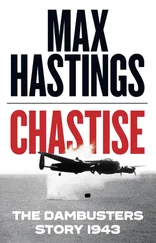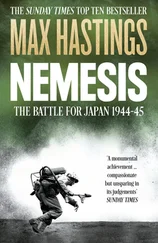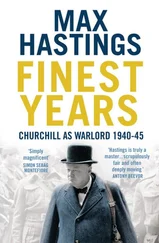‘Ever been to Jersey, Tom?’
‘Rather.’
‘What’s it like?’
‘Jersey? Jersey’s a place for five-pound swells. A five-pound swell? That’s one of those young fellers cutting a dash on five pounds because that’s all he’s got.’
‘But you can do anything with five pounds, Tom.’
‘No you can’t, missie. It sounds a lot to you, but if you have to pay for your own lodgings and your own fares and your own food and your own amusements, it don’t last more than a fortnight. And then you’ve got nothing to show for it.’
Herm was full of fascinations for children. There were snakes, which the boys caught and sometimes tried to take home. They once caused consternation in the Customs shed at Southampton when the reptiles staged a mass escape. For some reason, Herm’s princely owner had elected to keep kangaroos, which roamed wild, and seemed untroubled by having stones thrown at them. No ordinary visitors were allowed on the island, so that it was a paradise for digging caves in the sands, playing pirates, hunting for treasure. ‘We were so happy that we couldn’t quarrel very much,’ wrote Basil. They also dreaded the prospect that a row might result in one of the Pater’s show trials, which would waste precious holiday time.
Each Sunday, the family boarded the proprietor’s glittering steam yacht to attend Mass on Guernsey. At sea, the boys watched Tom Duffy working the engine. If Prince Blücher himself was aboard, he passed the trip shooting seagulls. The children marvelled at their father’s almost inextinguishable holiday good temper. Edward seemed happier on Herm than at home, delighting in his children, perhaps because the Tribe was easier to manage amid the wide-open spaces. To Basil, each one of those September days in the Channel Isles was an idyll.
Back in London, during Victorian winters when there were annual freezes, the Pater taught his brood to skate on the Ladies’ Pond in Battersea Park. They never minded skating days, because lessons at home were cancelled. Indoors, most of the boys’ games involved model soldiers and bangs. In those days, gunpowder could be bought loose across the counter, like tea or sugar. It was regarded, even by Edward, as a perfectly normal playroom accessory. One day Lewis and Basil made a bomb by wrapping sixpence worth of black powder in an oily rag, placing it inside a tin and wooden fort, then laying a powder trail to the door of the nursery.
The Pater was summoned to join the children and witness the climactic moment. Blinds were drawn to make the room dark, then the fuse was lit. They watched enthralled as the flame raced across a desert made of silver sand and entered the fort, defended by broken lead soldiers, their uniforms glinting in the firelight. When the trail caught the oily rag, for an instant the fort became brilliantly lit. Then there was a thunderous crash as it blew apart. The watchers coughed and spluttered in a nursery full of smoke. The Mater ran upstairs and threw a fit when she observed a deep burn on the floorboards. She scolded Edward for allowing it all, as well she might. He, however, chuckled and chuckled, and was still laughing as he went downstairs. In his own life he had allowed himself so small a quotient of fun, of recklessness, of self-indulgence. A moment such as that one released all manner of unexpected emotions. At heart, the poor man may have yearned to unleash a wilder spirit than ever he allowed. In any event, the explosion provoked no recriminations for Lewis and Basil. Heredity must count for something, because an enthusiasm for bangs has been a persistent attribute of the Hastings family ever since.
The Tribe reserved its utmost scorn for visitors, who were received with almost unfailing discourtesy. A woman before whom they were paraded in the drawing room said to Lewis: ‘Well, you are a big boy! Do you know that I nursed you when you were a tiny baby in arms? You must give me a kiss.’ Lewis glared blankly back and demanded: ‘Are you going to give us any money?’ This caused her to become very red in the face and leave quickly. The children categorised visitors who offered no tips as ‘the paupers’. Young Claude cannot have been best pleased when old grandmother Mary Hastings died in 1885, and bequeathed him only her red rosary blessed by the Pope.
Children often recoil from the banality of grown-ups’ remarks. My grandfather winced when a woman visitor gushed: ‘And is this really Basil?’ The Mater, who had thrashed her offspring that very morning, assented with an indulgent smile, which increased her son’s disgust.
‘He is a very big boy – and he looks so healthy.’
‘Oh yes, but just a little bit troublesome at times, aren’t you, Basil?’ said the Mater, beaming.
‘Oh no, I’m sure not!’ said the visitor, lifting her veil as well as her glass of sherry, the better to inspect the youthful prodigy.
‘I am afraid so. He had to have a little whipping this morning.’
‘Well, there now, but he’s going to be a good boy always now, isn’t he?’
If these performances were repugnant enough, the children’s worst ordeals took place when parties were held at Trinity Square. Never much liking outsiders anyway, their resentment intensified when they were ordered to confine themselves to bread and butter, so that visitors could scoff the cakes and éclairs. After tea, the Tribe was required to sing for the assembled company, to their mother’s piano accompaniment. The worst of the ditties they performed was entitled ‘O Tea, O Tea, O Fragrant Tea’. Once, old General Hastings, Edward’s uncle who had spent most of his life in the US Army, arrived on a visit. He was very old and very deaf, supposedly in consequence of cannon-fire, and his wife shouted at him through a speaking trumpet. The children quite liked his stories of the Mexican expedition and the US Civil War, ‘but he was horribly ignorant about real history like Horatius and Castor & Pollux’. Their best visitor ever was a girl cousin, whose father gave her a sovereign with which to amuse herself and the Tribe. They were able to go to the Zoo and back in cabs, as well as gorge themselves on ten shillings’ worth of ices, mince pies, Banbury cakes, ginger beer, meringues, angel cake, chocolates and tangerines. Basil said: ‘It was the best feed we ever had.’
But that huge family was always happiest in its own company. Both Lewis and Basil became accomplished story-tellers, regaling the younger ones with tales of slave ships, pirates, treasure, ghosts. There were more than enough of them to perform plays and tableaux in the big kitchen, which had lots of doors. The nurse was conscripted to print a programme on Edward’s typewriter. ‘I don’t think the pater liked anything so much on earth as these plays,’ wrote Basil. ‘He was always frightfully solemn at the solemn parts, and roared like mad if there was anything comic. At the end he clapped and clapped till he was tired. If you wanted to cheer him up you only had to tell him that there was to be a play the next Saturday.’
Edward carried to extremes a refusal to display signs of alarm, less still panic. Once, two of the younger boys hired a steam engine from Tuppence-the-Most. After it had been running for some time, delighting the Tribe, their parents went to bed. Lewis and Basil set about discovering how fast the engine could be driven. They poured fuel into its furnace, even breaking up their siblings’ toy theatre to feed the flames. There was a thunderous explosion, smoke filled the house. The nurse woke, and hammered in terror at the Pater’s door. ‘Come out sir, come out!’ she cried. ‘The house is on fire!’ The Pater’s response caused the children to howl with laughter: ‘All in good time, Nurse, all in good time. Wait till I find the coat I usually wear on these occasions.’ When Edward emerged, however, he went out into the street and rang the fire alarm, causing the brigade to appear, its horse-drawn engines galloping up the street. The children were ecstatic, the Mater furious. She pointed out that the fire could have been extinguished with a few buckets of water. She was neither the first nor the last Hastings wife invited to endure much at the hands of her husband and offspring.
Читать дальше












